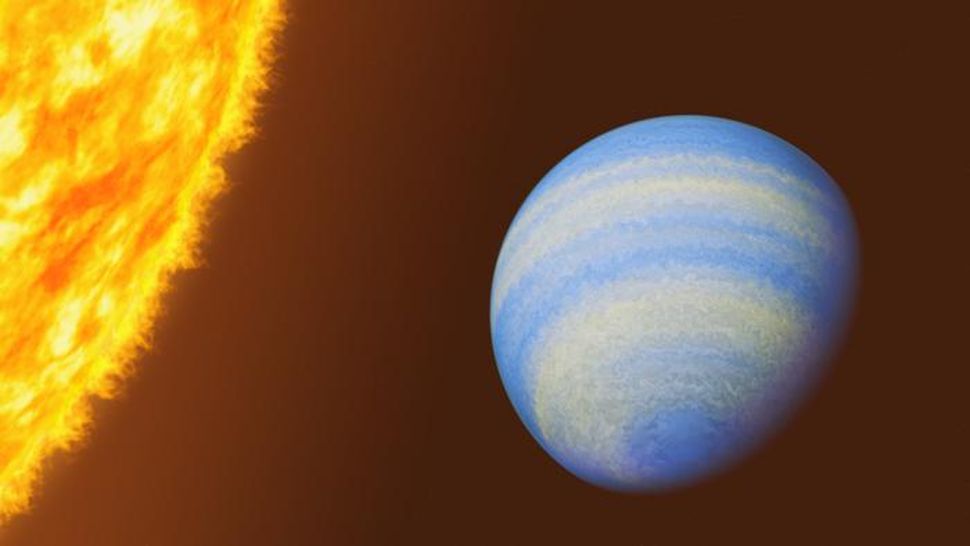By Harry Baker published 45 minutes ago
The James Webb Space Telescope revealed that the hot Jupiter exoplanet HD 189733 b, located just 64 light-years from Earth, has an atmosphere full of hydrogen sulfide, meaning it likely smells of rotten eggs.

Artist's interpretation of a blue gas giant exoplanet very close to a sun-like star
Exoplanet HD 189733 b circles its home star 13 times closer than Mercury orbits the sun. (Image credit: Roberto Molar Candanosa/Johns Hopkins Univeristy)
A hellish "hot Jupiter" planet situated relatively close to Earth would likely smell like rotten eggs if we ever made the trip to visit it, new data from the James Webb Space Telescope (JWST) reveals.
HD 189733 b is a gas giant located around 64 light-years away in the Vulpecula constellation. It orbits extremely close to its home star — around 13 times closer than Mercury orbits the sun — and completes one orbit every two days.
As a result, the exoplanet's surface can reach a scorching-hot 1,700 degrees Fahrenheit (925 degrees Celsius) — hot enough to melt certain types of rocks into magma.
Previous observations revealed that the exoplanet likely rains molten glass, which is probably blown sideways by winds that travel up to 500 mph (800 km/h) — around three times faster than a Category 5 hurricane on Earth.
More:
https://www.livescience.com/space/exoplanets/james-webb-telescope-reveals-rare-rotten-egg-atmosphere-around-nearby-hell-planet
